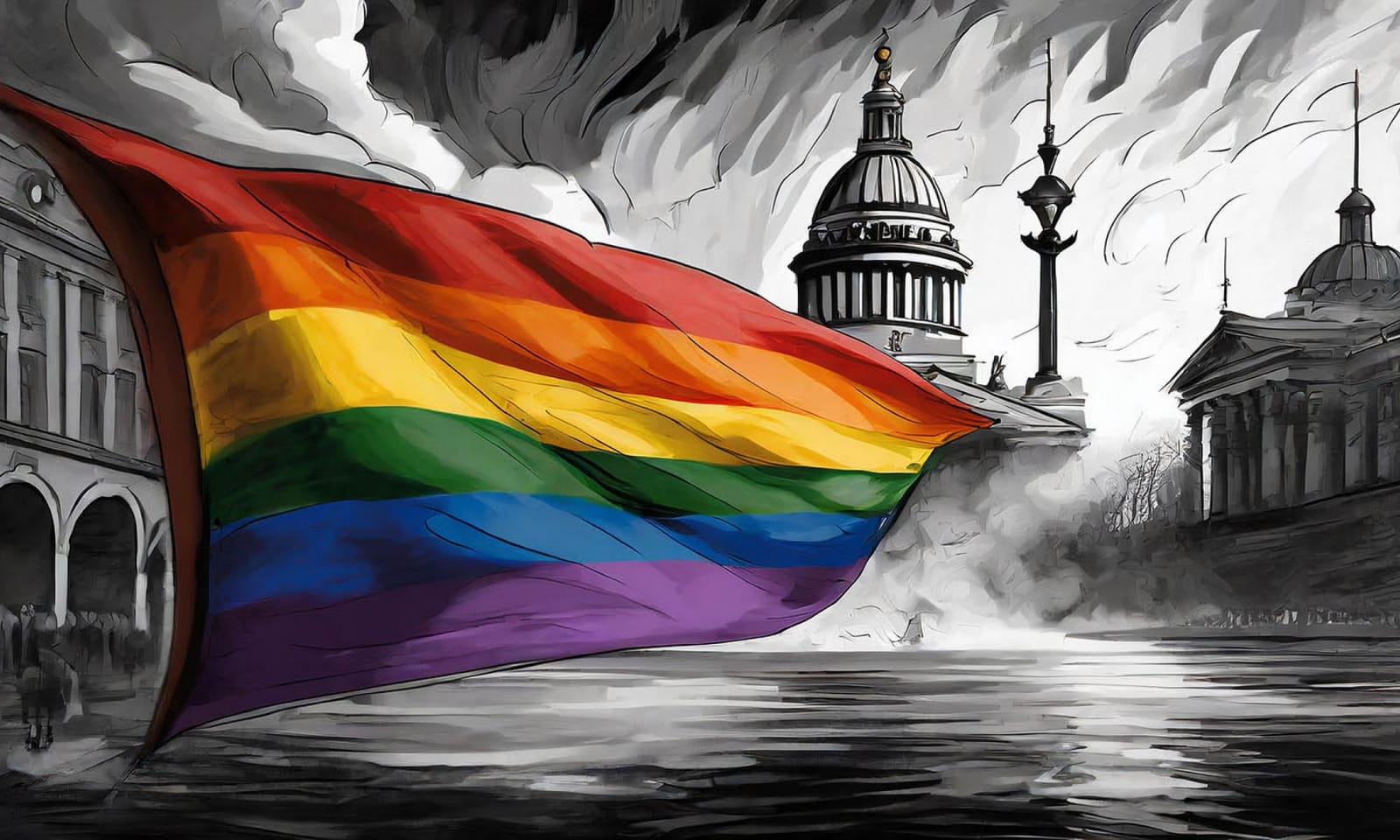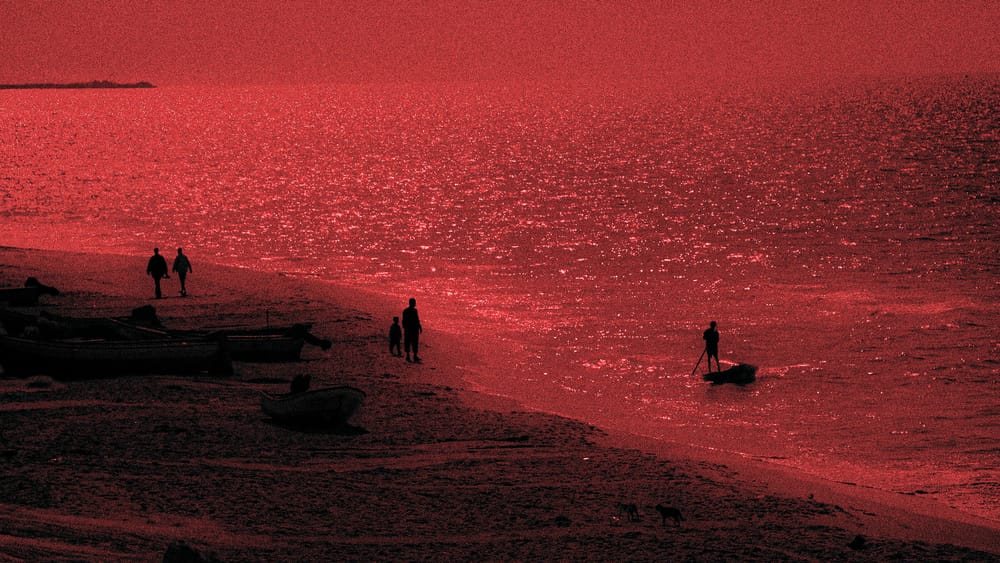Mizy Clifton spoke with those who have been impacted by the new laws, aiming to shed light on their personal narratives and the challenges they face.
*For privacy and security reasons, some names have been changed to protect the identities of the individuals interviewed.
Twenty-year-old Alex*, Russian and transgender, was once told by a man at a bar that he didn’t exist. The irony is that Alex cannot imagine himself existing otherwise. Speaking to The Lovepost via the messaging app Telegram just one day before Russian president Vladimir Putin signed a sweeping set of anti-trans bills into law, Alex was fearful but unwavering: “I can’t live as another person.”
The newly passed bills encompass the following stipulations:
- All medical interventions aimed at “changing the sex of a person” have been outlawed. This ban conveniently spares 'corrective' medical procedures for those diagnosed with disorders of sex development. The historical enforcement of surgeries and hormone replacement therapy on this population makes this exemption unsurprising.
- Transgender people are now barred from updating their official documents to reflect a gender change.
- All transgender people are now prohibited from adopting or fostering children.
- All marriages involving a transgender individual will be nullified. This measure aims to prevent what lawmakers perceive as a potential loophole in the law. They are concerned that allowing such marriages to remain valid after a gender change might inadvertently grant marriage and adoption rights to same-sex couples, which are typically restricted based on legal gender. Therefore, by nullifying these marriages, lawmakers seek to maintain the existing legal framework regarding marriage and adoption rights.
Noel Shaida, Head of Communications at Russian LGBT+ advocacy organisation Sphere Foundation, summarised the situation for me: “The Russian government [has] effectively cancelled transgender people.”
Such moves by Putin’s administration are not, of course, without political precedent. Nor could Russia be understood as a safe place for expressions of gender nonconformity before July 24, 2023. In 1997, trans people gained the right to change their legal gender, and in 2018 the process was liberalised to the extent that they needed only a medical certificate of “transsexualism”, but there has never been any explicit or specific legal protection against discrimination based on gender identity. At school, Ken* recalled being told by two of his teachers that trans people deserved to die, or be raped. It was only when institutionalised in a hospital for mental illness during the autumn of 2022 that he found others who were supportive of his gender identity. Frank*, too, spoke of how hard it was to find caring people, and of the pervasive sense that people would not approve of him: “Every random pedestrian or person in a supermarket would be deeply grossed out if they knew who I was.” He wasn’t even able to be open about his identity with a therapist.
The situation has escalated as a result of the new legislation, and an impossible choice burdens trans people in Russia. For Alex and many others, the prospect of living as the gender they were assigned at birth is an unlivable one, amounting to a profound denial of their personhood. Yet with transness now essentially criminalised, except in private self-definition, the alternative—honouring one’s gender identity in a meaningful way—has become equally inviable. Lyubov Vinogradova, the executive director of the Independent Psychiatric Association of Russia, was among the medical professionals who spoke out against the recent ban. In an interview with The Associated Press, Vinogradova called it “misanthropic”. But her hands are tied when it comes to providing gender-affirming care to trans people.
In the haunting words of Frank, the consequence is something close to ‘delayed life syndrome’, the sense that, “I’ll only get to live my life when I’m somewhere else.” He now feels so endangered leaving his house that he is considering going back to looking traditionally feminine.
Indeed, all of the trans people spoken to referenced a ‘somewhere else’. In response to whether she saw a future for herself in Russia, Lisa*, a trans woman, replied plainly: “No. Even through decades, I don’t think anything can be changed in Russia.” Those spoken with could only imagine a meaningful future for themselves outside of Russia, often in Western or Southern Europe. Their sense of urgency was palpable, even over text message exchanges. Many apologised for their delay in replying because they were planning escape routes or putting together asylum applications.
At the end of an interview, it is routine practice to thank somebody for their time. Here, time truly was invaluable, with many interlocutors scrambling against the clock—and a hostile state bureaucracy—to get their documents changed before the ban came into force. One such person was Makar* who bravely broadcast the ordeal of securing an ‘M’ on his passport to 55,000 Instagram followers. Those who were not so lucky are now racing against another clock: how long they can live in a country where their futures have become unimaginable. Despite wanting to feel happy for friends who managed to get their documents through, Ken struggled with feelings of jealousy and told his friends he’d prefer they didn’t talk about it.Ambrose Orman of Center-T, a Russian transgender organisation, discussed what the international community should be doing in response to the legislation. In the weeks since the bill was first introduced, Center-T saw a three-to-fourfold increase in requests for assistance from service users. Orman said that trans folk “need to know they are not alone, and that someone cares, and a reminder that they will be able to outlive this and thrive”. Shaida, from the Sphere Foundation, similarly offered a message of hope, perhaps less a call to action than a call to being: “No law, no prohibition, will undo who we are.”







